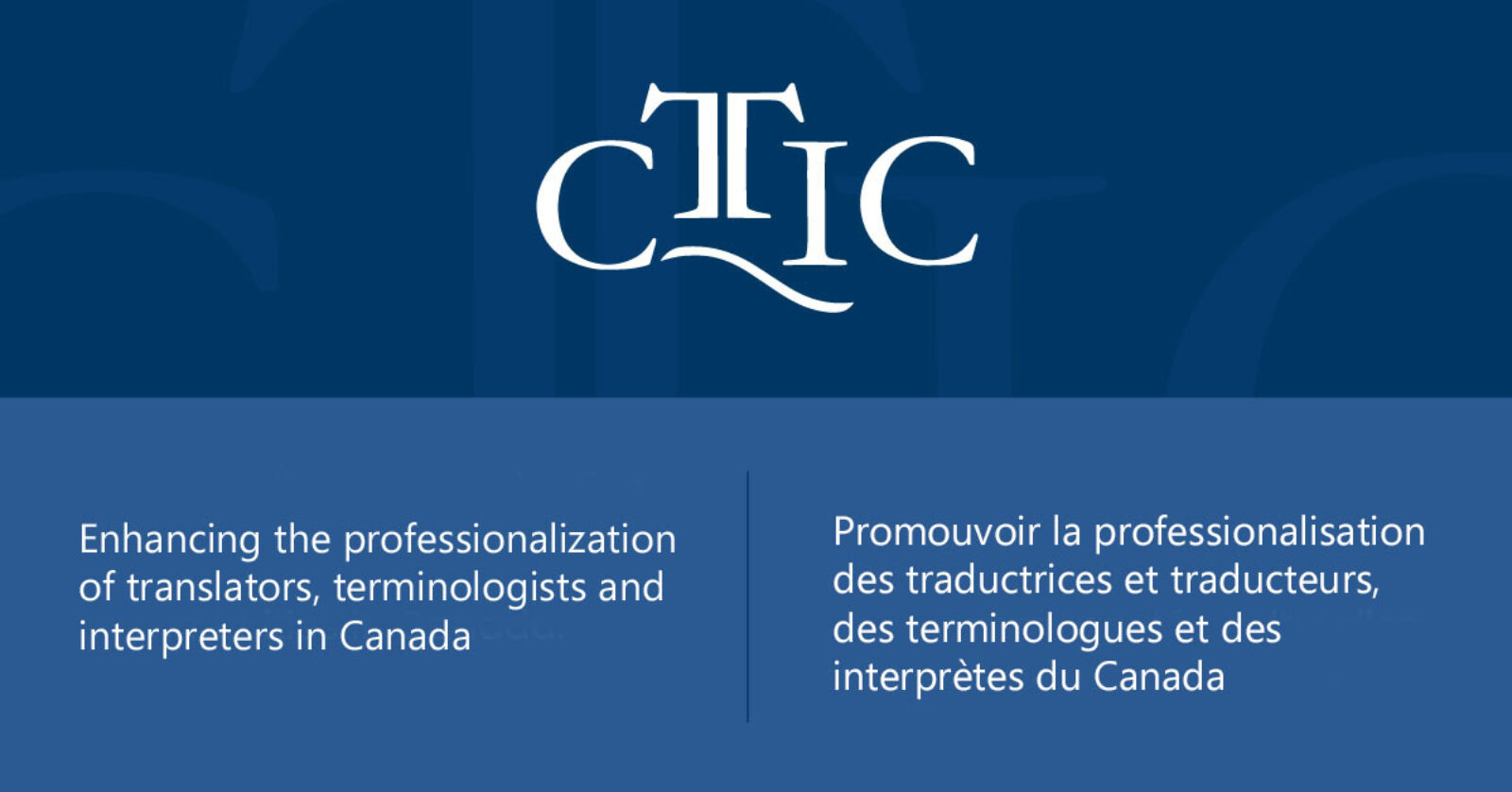The following titles “Certified Translator,” “Certified Terminologist,” “Certified Community Interpreter,” “Certified Conference Interpreter,” “Certified Court Interpreter” and “Certified Medical Interpreter” are granted by the provincial regulatory bodies for these professions.
CTTIC is responsible for the application of uniform standards for professional certification across Canada, with the exception of Quebec. CTTIC also administers the various exams that confer the right to use these titles.
Outside of Québec, three certification mechanisms are used in Canada: on dossier certification, certification by examination and certification by mentorship, the last being offered only in New Brunswick. The titles for certified translators, interpreters or terminologists are granted by the provincial body to which the candidate has applied for certification.
Please note that in order to be eligible for certification, you must first apply for and be accepted as a member of one of our member societies. Please go to Member Societies for a listing of their websites where you will find detailed information regarding their membership requirements.
On Dossier Certification (Translation, Interpreting and Terminology)
Candidates with a recognized diploma who can prove that they possess the required minimum pertinent work experience may present an application for on dossier certification.
Experienced language professionals who do not have a recognized diploma and whose training has not been recognized as equivalent, but who can prove that they meet a higher threshold of professional practice, may become candidates for on dossier certification.
Note that the number of years of required work experience may vary from province to province based on each jurisdiction’s situation.
Certification by Mentorship
In New Brunswick only, the CTINB offers a mentorship program in which candidates work with experienced certified translators who provide guidance and help them obtain official recognition of their abilities. See CTINB’s website page for more detailed information.
Certification Examinations
One of CTTIC’s main roles is to ensure consistent application of certification by standardizing methods of entry to the profession. CTTIC administers a uniform translation exam based on the combined efforts of member societies through the Standardized Certification Examinations Board of Examiners. This Board reports to CTTIC’s Executive Committee and sets the procedures regarding the administration of certification exams.
In addition to the translation exam, exams in community interpreting, conference interpreting1, court interpreting, medical interpreting and terminology2 are held from time to time according to demand. Applicants should contact the body representing their province of residence directly. Passing one of these exams may confer the right to use the associated title of certification, as long as the provincial body to which the candidate has applied for certification has title protection. Please note that not all provincial member societies have been granted title protection by their provincial authorization body.
1. Currently, there is no exam available for conference interpreting. Candidates should speak to their association about alternative ways to be granted certification.
2. Currently, there is no exam available for terminology. Candidates should speak to their association about alternative ways to be granted certification.
Translation Exam
The translation exam is for professionals who wish to have their skills recognized by their peers and who wish to be able to use the title of “Certified Translator.” The exam is designed not to show aptitude but to demonstrate a candidate’s professional skills. Candidates are considered able to practice their profession independently if their exam results demonstrate the ability to produce a faithful, idiomatic translation that requires little or no revision. The translation exam is held in person throughout the year in several cities around the country. As of 2021, it is also offered online.
Conference Interpreting Exam
The conference interpreting exam3 administered by CTTIC is for professional interpreters who can prove that they have 200 days of practice under professional conditions or who have equivalent qualifications.
3. Currently, there is no exam available for this profession. Candidates should speak to their association about alternative ways to be granted certification.
Court, Medical and Community Interpreting Exams
The court interpreting certification exam, administered by CTTIC, includes professional conduct and ethics, modules to assess language skills, knowledge of legal terminology and court procedures, written translation, sight translation, consecutive interpreting and simultaneous interpreting.
The medical interpreting certification exam, administered by CTTIC, includes professional conduct and ethics, modules to assess language skills, knowledge of medical terminology, written translation, sight translation and consecutive interpreting.
The community interpreting certification exam, administered by CTTIC, includes professional conduct and ethics, and modules to assess language skills in written translation, sight translation and consecutive interpreting.
Terminology Exam
This exam4 aims to recognize candidates with extensive skills in terminology who can accomplish tasks of moderate difficulty as terminologists and who can perform terminological research in a specialized field.
4. Currently, there is no exam available for this profession. Candidates should speak to their association about alternative ways to be granted certification.
Professional Recognition
The certification titles listed above are recognized by legislation in New Brunswick, Ontario and British Columbia. The other member societies enjoy a certain de facto recognition by public authorities in their province and are working toward obtaining these titles officially.
Pan-Canadian Reciprocity Agreement
Eight provincial bodies in Canada have signed a reciprocity agreement: STIBC, ATIA, ATIS, ATIM, ATIO, OTTIAQ, CTINB and ATINS. Each regulatory body that grants reciprocity agrees, without requiring an exam or a formal dossier review but after a summary evaluation of the application, to grant the status of certified member to a candidate who belongs to another regulatory body that grants reciprocity and who meets the following conditions:
- has completed the mutual certification recognition form and submitted the required documents;
- has paid the required fees;
- has met at least one of the requirements in Article 3 of the agreement;
- is not subject to an exclusion under Article 4;
- has fulfilled the other requirements of the host regulatory body with respect to official languages, training on professional practice and legal or disciplinary history.
The reciprocity agreement can be consulted by clicking here.
